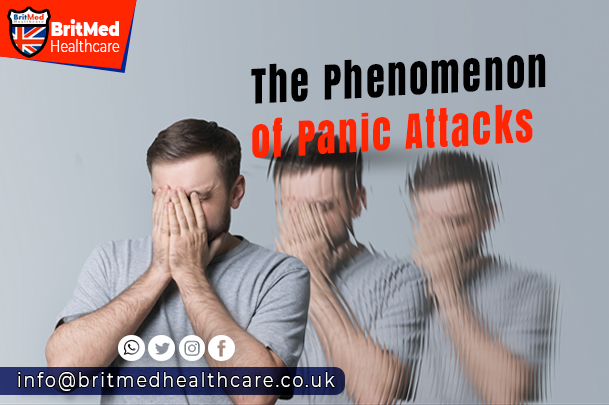The Phenomenon of Panic Attacks: A Comprehensive Examination
Panic attacks are a universal and appalling phenomenon that can strike the lives of individuals from any background. Characterized by sudden and intense episodes of fear, anxiety, and physiological arousal, such attacks may have debilitating effects on the sufferer and may potentially impact quality of life in a number of ways. The present article attempts to analyze panic attacks through an in-depth overview of the symptoms, causes, diagnosis, and treatment options available.
Symptoms of Panic Attacks
The panic attacks generally are preceded by an ominous sense of imminent disaster or tragic outcome and can be mounted as anxiety crescendo, fear, or apprehension. The patient can present with a variety of somatic complaints, including:
– Racing heart or palpitations
– Sweating or flushing
– Trembling or shaking
– Dyspnea or sensation of choking
– Nausea or abdominal distress
– Dizziness or lightheadedness
– Feeling of detachment or disconnection from oneself
Besides these physical symptoms, cognitive distortions and irrational ideation are common in panic attacks, such as a fear of losing control or going mad. Such thoughts can be quite distressing and further heighten the feelings of anxiety and fear.
Causes of Panic Attacks
The precise causes of panic attacks are still not fully understood; however, studies have shown that they often relate to a combination of genetic, environmental, and psychological factors. Other possible contributing factors could be:
– Genetic predisposition: Individuals with family histories of anxiety disorders may, therefore, be especially prone to panic attacks.
– Environmental triggers: Traumatic experiences, such as abuse or neglect during childhood, have the potential to raise the chances of panic disorder.
It involves factors such as personality attributes like perfectionism or low self-esteem that trigger attacks. Neurobiological factors may also contribute to developing panic attacks, including abnormalities in brain chemistry and function. Diagnosis commonly consists of a careful clinical examination that can involve the following: Complete medical history Physical examination psychological evaluations Diagnostic criteria for panic disorder
Treatment options for panic attacks vary and may include the following:
– Cognitive-behavioral therapy (CBT): A type of psychotherapy that helps an individual learn to recognize the pessimistic thinking patterns and belief systems that may be the cause of unnecessary stress and anxiety in order to make positive changes.
– Medication: Antidepressant medications, particularly SSRIs, can help alleviate symptoms of panic disorder.
These include skills for relaxation, such as deep breathing, progressive muscle relaxation, and visualization, which help the individual reduce anxiety and thereby the symptoms associated with panic attacks.
Conclusion
These phenomena of panic attacks themselves are complex and distressing; the quality of a person’s life can be grossly affected by an attack. Medical professionals can therefore understand symptoms, causation, diagnosis, and treatment options and provide effective support and treatment responses to individuals affected by the condition. We will continue to understand more and more about panic attacks and educate others about the care concerning our mental health.
References:
Panic Disorder – an overview | ScienceDirect Topics
Panic attacks and panic disorder – Symptoms and causes – Mayo Clinic
Panic Disorder – StatPearls – NCBI Bookshelf (nih.gov)
Websites:
Britmed Healthcare: https://britmedhealthcare.co.uk/
Nightingale Hospital: https://www.nightingalehospital.co.uk/
You can also book on Top Doctors UK Contact us on WhatsApp 08009708017
Top Doctors: https://www.topdoctors.co.uk/doctor/ahmed-el-missiry




